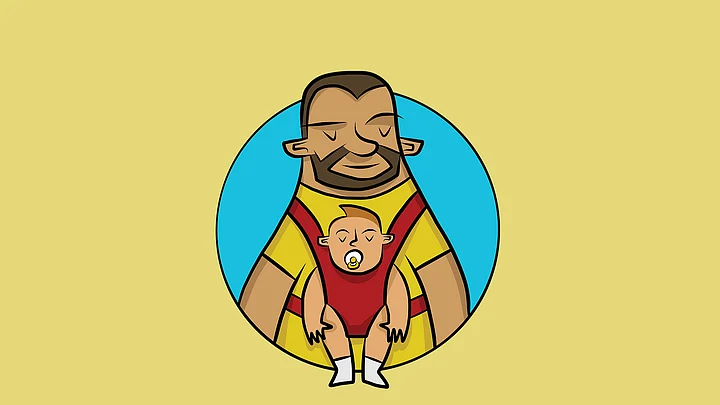Do Indian men need paternity leave?
After the Rajya Sabha passed the Maternity Benefits (Amendment) Bill, 2016, Union Minister of Women and Child Development Maneka Gandhi said that men would consider paternity leave as a ‘holiday’. She further said that she would consider a paternity leave provision in the Bill, only if she found that Indian men were availing of ‘sick leave’ for a month to take care of their children.
She has consequently denied her ‘holiday’ statement, but it doesn’t matter. Gandhi’s statement has opened a proverbial can of worms.
To begin with, the paternity leave argument challenges conventional notions of child care, fatherhood and family. An absence of paternity leave implies that child care is only the responsibility of a woman.
But, to make paternity leave legally binding comes with its own set of problems. Moreover, providing leave (whether maternity or paternity) needs to be supplemented by other initiatives like work-site creches to enable the woman to seamlessly return to the workforce after a pregnancy.
Ma Looks After Child; Pa Goes to Work: Reinforcing Gender Roles
Currently, organisations in India are not bound by law to provide paternity leave to its employees. In the government sector, men (whether biological or adoptive fathers) can take leave for 15 days. In the private sector, more and more organisations are providing paternity leave, but there is no binding legislation.
However, the Maternity Bill’s absence of a provision for paternity leave reinforces patriarchal gender roles which dictate that child care is a woman’s responsibility. It has been widely acknowledged that in the first few months after the birth of the child, the mother’s presence is essential for the child’s health and growth, but she needs her partner’s support too during this time.
Child care is not just a woman’s responsibility. It is a mindset issue, the state needs to acknowledge that the father also has a responsibility in raising a child. I believe that paternity leave should be provided in addition to maternity leave, which should remain non-negotiable.Sudeshna Deshpande, Senior Manager, Advocacy, Mobile Creches
Considering the already existing number of Indian women in the workforce, lack of paternity leave strengthens existing gender roles. Which might further hinder women from joining the workforce. According to a McKinsey Global Institute report released in November 2015:
Women in India represent only 24 percent of the paid labour force, as against the global average of 40 percent. In the 15-59 years age group, women’s participation is only 32 percent in rural areas compared with 83 percent for men, and 21 percent in urban areas as against 81 percent for men.
Not a Level-Playing Field in the Interview Room
Imagine you are hiring for an available position in your organisation. There are two candidates in front of you. Both of them are equally skilled and are a fit for your workplace culture. One is a man and the other is a woman. Now, you are legally bound to provide for leave for the female candidate, but not so for the male candidate. Who would you hire?
The discrimination that most women face while interviewing for a job will get only magnified with the absence of a legislation on paternity leave. Not that maternity leave doesn’t already act as a factor while hiring women in the private sector, but the lack of paternity leave would only serve to adversely impact hiring of women even more.
Private sector organisations are slowly providing paternity leave, it is a transition which is taking place. I think the comparison between a man and woman while hiring is situational. For some people it might be a consideration, but in most cases, if a person is qualified enough, he or she will work; and consequently be hired.Himali Kulshreshtr, Executive, SimplyHR.in
Should Paternity Leave be Compulsory?
I feel that paternity leave shouldn’t be made compulsory. There needs to be certain flexibility in the arrangement. Maybe one month after the baby’s birth, the family needs the support of the father. One cannot force it on a person.Himali Kulshreshtr, Executive, SimplyHR.in
India’s fathers clearly need a break, for the sake of the mothers too. But should it be made legally binding or be included as a provision to be availed with flexibility?
The opinion on that is divided. For some, the flexibility of a paternity leave is essential to the efficiency of the workforce. But some HR managers believe that the birth of a child, even for a male employee, necessitates the need for leave.
The Maternity Benefit (Amendment) Bill, 2016 is an important victory for women in the workforce. But a provision for paternity leave would have, in all probability, made a stronger statement. There is no guarantee that a progressive law immediately causes a change in accepted social conventions and gender roles.
Yet, more often than not, laws are the spark which initiates a debate on what is considered ‘normal’ or not. And for parents-to-be across India, the Maternity Bill has raised as many questions as they have settled some age-old doubts about motherhood and family.
(This piece was originally published on 29 August 2016. It is being republished from The Quint’s archives in the context of the Lok Sabha passing The Maternity Benefits (Amendment) Bill, 2016. The Bill grants 26 weeks of paid maternity leave to working women in the organised sector.)
(At The Quint, we question everything. Play an active role in shaping our journalism by becoming a member today.)
